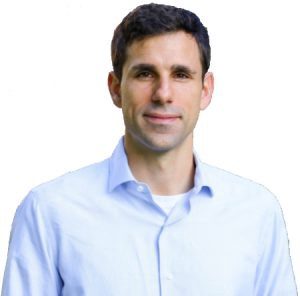
by Sophie Burkholder
The Department of Bioengineering at the University of Pennsylvania is excited to welcome César de la Fuente, Ph.D., as an Assistant Professor of Bioengineering. De la Fuente, who is also an Assistant Professor in the Department of Psychiatry and Microbiology in the Perelman School of Medicine and was recently named a Penn Presidential Professor, is the principal investigator of the de la Fuente Lab with current projects including the development of computer-made antibiotics, microbiome engineering technologies, and synthetic neuromicrobiology tools.
Dr. de la Fuente has wanted to learn the mysteries of the world around him from a young age, from the origins of life and human consciousness to how diseases can affect the body. His dream of understanding the building blocks of life began to take shape when he enrolled as a graduate student at the University of British Columbia to study microbiology, immunology, and protein engineering. After earning his Ph.D. in these subjects, de la Fuente went on to complete a post doctorate in synthetic biology and computer science at the Massachusetts Institute of Technology (MIT).
Recently, MIT recognized Dr. de la Fuente on its “35 Innovators Under 35” list, which honored de la Fuente as one of the world’s top 35 innovators and as a pioneer for his use of technology to improve antibiotics. Furthermore, GEN recently listed Dr. de la Fuente on its “Top 10 Under 40” list of young leaders in the life sciences, noting his development of transformative biotechnologies as a potential solution to antibiotic resistance. De la Fuente refers to this latest research as “Machine Biology,” a crossover of life and technology that “brings together elements of machines in order to computerize biological systems.”
His creativity in the merging of so many domains of science echoes throughout de la Fuente’s general approach to research and academia as well. While he emphasizes a thinking-from-the-ground-up approach, he also feels that “heterogeneous groups make better ideas,” and thus strives to maintain diversity in his lab — currently his entire lab is made up of international students and postdocs. In the future, de la Fuente hopes to extend his love of mentorship to the classroom in a course exploring the intersection of microbiology and synthetic biology, overlapping in a way similar to his research. We can’t wait for all of the innovation and creativity in engineering that de la Fuente will undoubtedly bring to our department.
